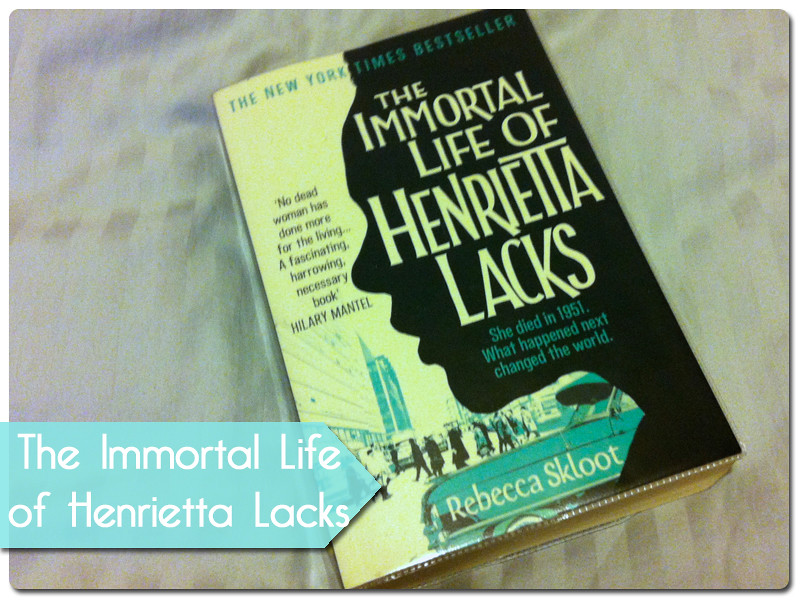Please excuse the awful photography with this one, definitely not up to my usual standard!
The Immortal Life of Henrietta Lacks by Rebecca Skloot is a bit of a harrowing tale, it is a non fiction investigation into the dark side of cancer research. The author sets out to investigate into the medical genetics source HeLa, a set of cancer cells which while extracted from an unidentified patient in the 1950's have continued to multiply under their own steam ever since, providing an endless source of cells for biomedical research and from which nearly all cancer research has stemmed. The cells were a mystery, as who this set of genes originated from was kept a closely guarded secret, and in the book Skloot sets about to find out who this person who has made such a difference to medical history was and to give them a voice.
I can honestly say that before reading this book I rarely, if ever, read any non-fiction. I don't know why but I just couldn't find an interest in it. Henrietta Lacks changed all that. I was intrigued by this story after the discovery of a cancer gene in our family. My family has an unfortunately long history with the big C from a patient and a research perspective, so I knew that there existed the fabled HeLa cells, I did not know however that there was a great back story to where they had come from. When I picked up the book and realised its subject matter I got stuck in and couldn't put it down.
The story of Henrietta is fascinating and heartbreaking, it grips the reader from start to finish as you are so conflicted. Henrietta was not even asked permission to have those cells of hers taken and preserved, her family had had no recognition for their contribution to medical history, these are things that nowadays we would be outraged to have happen to us but they were the norm for that time. And yet it is because of this that it is so hard to feel angry at this treatment because of the developments that have stemmed from these medical practices.
The science in the book is far from intimidating, making the complicated parts simpler to understand for a layman and not going into too much detail where it isn't necessary. I would definitely not let the scientific subject matter put you off picking this up. At its core the story is much more to do with Henrietta herself and the effect her illness has had on her family.
I think that with Cancer being such a prominent concern in our world, it helps to be a little more clued up on the origins of treatment. Science is moving so quickly in this field to the point now where a huge number of patients undergo targeted gene therapy rather than traditional chemotherapy, and that would not have been possible without HeLa and the insight into the genetics of cancer that she has given us.
★★★★★


